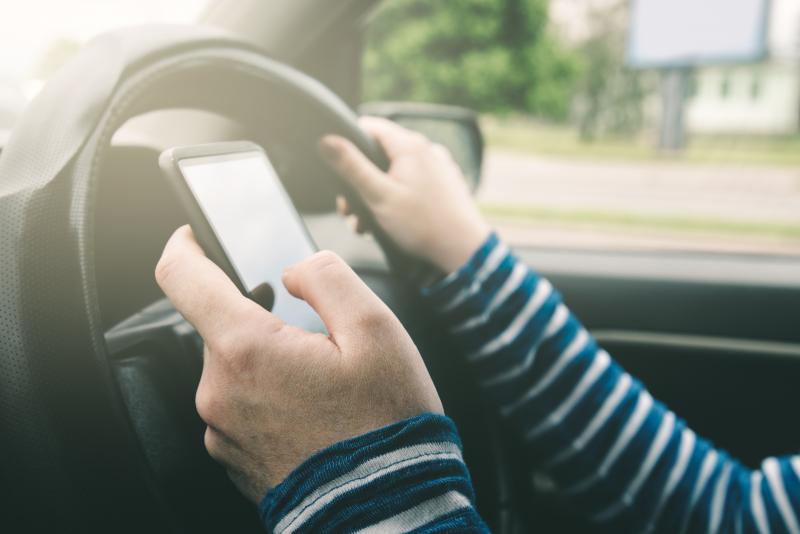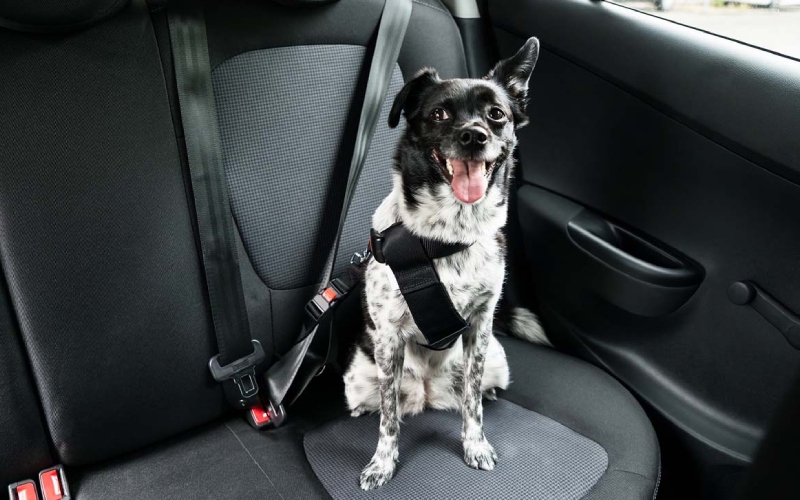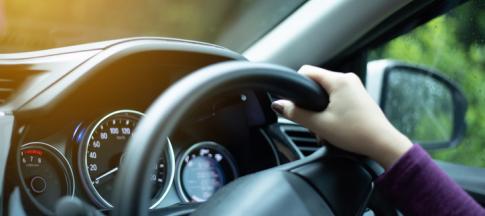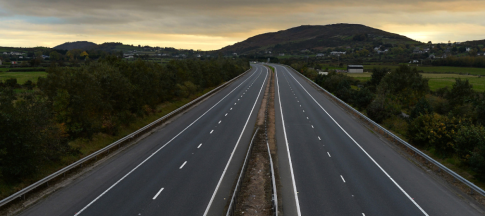Are you unknowingly breaking the law when you're driving?

While there aren’t many specific driving laws, some of the vaguer laws can cover lots of common driving habits we’re all guilty of. If you need to brush up on any of the rules mentioned in this article, you can find the entire Highway Code on GOV.UK.
From tailgating to failing to indicate, these are some of the most ill-advised motoring habits that could land you with a fine.
Tailgating
Tailgating is when you drive too closely to the vehicle in front, meaning you can’t stop safely if you need to brake suddenly. Not only is it aggressive, but it's also incredibly dangerous.
Allow at least two seconds stopping distance from the vehicle in front, and double that in poor weather conditions.
The Highway Code states:
Dangerous and careless driving offences, such as tailgating, are enforced by the police.
Failing to indicate
Failing to indicate is dangerous as it can mean other drivers fail to slow down and pedestrians may think it’s safe to cross.
While the Highway Code doesn’t mention a penalty for this offence, you can get a driving without due care and attention charge with a fine of up to £2,500 and nine penalty points. Remember, penalty points can affect your insurance.
If you get a fine and your indicators aren’t working, you have 14 days from the date of the notice to show the proof to the police.
Driving with unrestrained dogs
Your dog should always be restrained with seat belt harness, dog guard or dog cage to keep you and your pet safe.
If you're stopped by the police and they think your dog is a distraction, it's possible that you could be charged with driving without due care and attention. The punishment is a fine of up to £2,500 and nine penalty points.
If you need more help, read our pet travelling tips.

Parking in dedicated bays
The two main parking bays in the UK are disabled and parent and child.
The bays are specifically designed to accommodate the extra space needed by drivers and are at the front of the car park to reduce the distance needed to travel.
Only Blue Badge holders are legally allowed to park in disabled bays. You can park in a parent and child bay if you’re with a child under 12 or in a car seat.
If you park in a disabled parking space without a Blue Badge, you’ll likely get a penalty charge notice (PCN) with a fine of up to £1,000.
You can also receive a PCN for parking in a parent and child bay. We’ve covered how to avoid paying parking fines if you need help.
The Highway Code states:
“You MUST NOT park in parking spaces reserved for specific users, such as Blue Badge holders, residents or motorcycles, unless entitled to do so.”
Middle lane hogging
Driving in the middle lane on motorways without needing to causes congestion during busy periods, frustration and can be dangerous.
Since 2013, the police have had the right to pull over middle lane hoggers and issue them with an on-the-spot fine of £100 and three penalty points on their licence.
The Highway Code states:
“If you are overtaking, you should return to the left lane when it is safe to do so.”
Eating and drinking at the wheel
It’s not illegal to eat or drink while driving, but some drivers take it too far, risking their safety and other road users.
If you're distracted while snacking, you could be prosecuted for careless driving if the police believe you were not in proper control of your vehicle – an offence which carries an on-the-spot fine of £100 and three penalty points.
The Highway Code states:
“Safe driving and riding needs concentration. Avoid distractions when driving or riding such as eating and drinking.”
Splashing pedestrians
Although the Highway Code doesn’t mention splashing pedestrians with puddles, it could land you with three penalty points on your licence and a £100 fine.
The maximum punishment is a fine of £5,000 in instances where driving "amounts to a clear act of incompetence, selfishness, impatience or aggressiveness".
When it’s lashing down with rain, slow down and be safe.
Wearing inappropriate footwear
It’s not illegal to drive in the UK wearing any specific shoes (or no shoes!), however, it compromises safety and can land you with a driving without due care and attention charge.
If you wear heels to work or are wearing flip-flops to the beach, swap to comfortable shoes or trainers while you drive and put your other footwear on when you reach your destination.
The Highway Code states:
You SHOULD ensure that clothing and footwear do not prevent you using the controls in the correct manner.
I'm an experienced journalist, digital editor and copywriter, now specialising in motoring. I’m editor of Automotive Blog and have worked across the media in newspapers, magazines, TV, teletext, radio and online for household names including the BBC, GMTV, ITV and MSN. I’ve produced digital content in the financial sector for Lloyds Bank, Nationwide and the Money Advice Service. I'm married with two children and live near Bath in Somerset.


